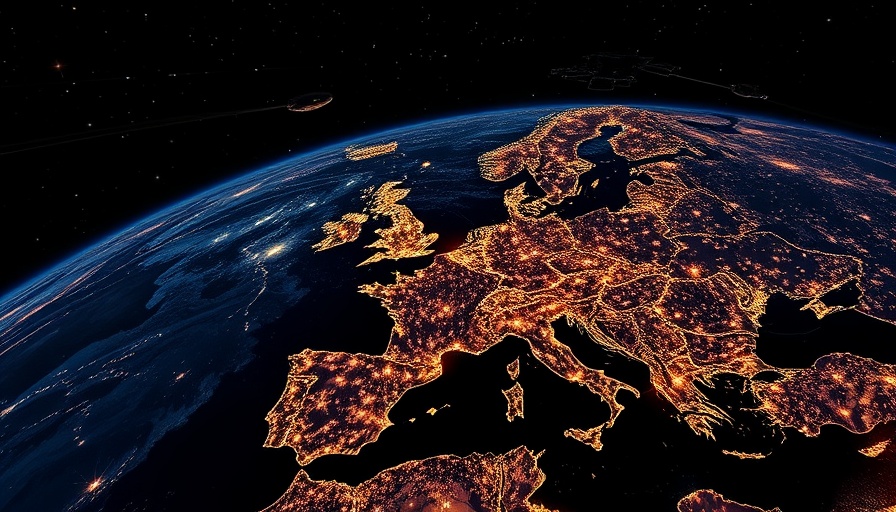
Understanding AI's Environmental Impact
The environmental concerns associated with artificial intelligence (AI) are gaining significant attention. In the recent The AI Show episode, hosts Paul Roetzer and Cathy McPhillips discussed pressing questions about AI’s operational impact on the environment. One highlighted concern is the energy consumption of data centers that power AI systems. As these technologies proliferate, the cost to our planet grows, calling for urgent solutions. From renewable energy adoption to more efficient coding practices, the responsibility lies with both AI developers and regulatory bodies to drive change.
Beyond Cultural Bias: AI and Diversity
Another critical topic covered in this episode is the cultural and linguistic biases that persist in AI models. Despite advancements, many models still reflect an American-centric viewpoint, which limits their effectiveness on a global scale. Industry experts agree that it’s imperative to incorporate diverse languages and cultures into AI training datasets. This inclusivity not only enhances usability across different regions but also fosters a more equitable technological landscape. Progress is being made, but the journey is far from complete.
AI in Marketing: Legal Gray Areas
The integration of AI-generated content in marketing campaigns has raised complex legal questions. Roetzer illuminated the risks and ownership challenges associated with AI-produced videos and images. As marketers tread through these murky waters, the lack of legal clarity surrounding AI's creative outputs poses a significant hurdle. Companies must establish firm guidelines and monitor ongoing developments in AI legislation to navigate this evolving area effectively.
Exploring AI Agents: Practical Steps for Professionals
A portion of the discussion focused on how individuals and teams can effectively begin experimenting with AI agents. Whether you’re a solo professional or part of a mid-sized team, initiating your AI journey can start with simple adjustments to your existing workflows. The key is to embrace a mindset of exploration and gradual implementation. Testing various platforms and using resources available online can prove invaluable in understanding how AI agents can enhance productivity.
The Future of AI and SEO Strategies
As AI continues to evolve, its impact on search engine optimization (SEO) is also transforming. The episode prompted listeners to consider whether adhering to multiple tools for SEO strategies or committing to a single ecosystem would yield better results. This decision can significantly influence a brand's online visibility and engagement strategies. The consensus is that while some businesses may thrive on diversification of tools, others may find strength in specialization.
AI's Role in Community Building
Moreover, AI is poised to play a crucial role in building and managing communities. Whether it’s through chatbots for customer service or personalized content delivery, the efficiencies gained through AI are significant. However, the conversation encouraged a balanced approach; while automation can streamline operations, it’s vital to maintain a human-first perspective to ensure community engagement remains genuine and impactful.
Taking Action: Implementing AI Strategies
As businesses navigate the complexities of integrating AI into their operations, taking actionable steps is vital. Start by defining clear objectives for how you wish to leverage AI in your marketing strategies and community engagement. Regular reassessment of your AI tools and their performance will enable you to adapt swiftly in this fast-paced environment.
In conclusion, understanding the multifaceted implications of AI is essential as it becomes increasingly embedded into various sectors. From environmental sustainability to cultural diversity, the future of AI is intertwined with societal values and responsibilities. Businesses and professionals looking to stay ahead must embrace the challenges and opportunities that this technology presents.



Write A Comment